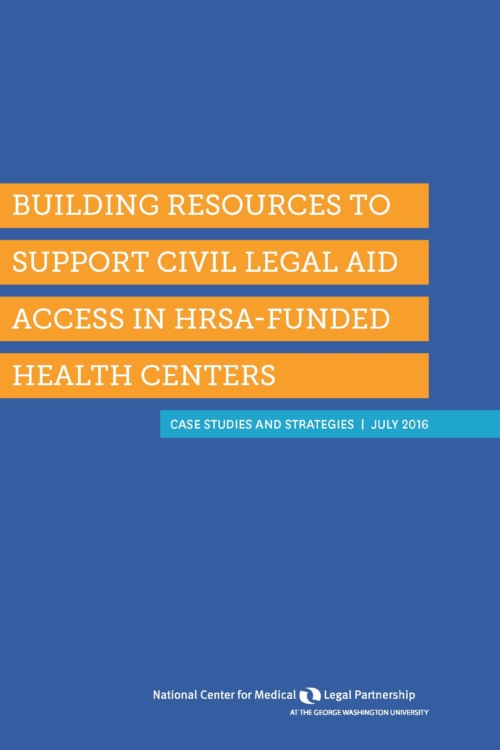
Brief: Building resources to support civil legal aid access in HRSA-funded health centers
Thursday, July 28, 2016
Download the brief: "Building Resources to Support Civil Legal Aid at Health Centers"
Health centers have long recognized the importance of offering services beyond medical care to improve the health of their patients, including language access, transportation, and community supports. Over the past few years, a growing number of health centers have added civil legal aid services to this list, recognizing the critical role civil legal aid and medical-legal partnership (MLP) can play in eliminating barriers to good health posed by complex social and legal needs. But historically, health centers have struggled to procure and sustain the resources required to support MLP programs.
MLP are rapidly diversifying their funding streams, and taking cues from pioneering health centers to more effectively connect their services to priority populations and activities, seeking revenue alignment and impact wherever possible. One such way that health center-based MLPs diversified their financing in 2015 was through the HRSA Expanded Services (ES) supplemental funding awards to support increased access to preventive and primary health care services at existing Health Center Program grantee sites.
This issue brief describes the ways that a supplemental funding opportunity sparked MLP growth in health centers, resulting in expansions in civil legal aid services provided to health center patients by partnering civil legal aid organizations and law school clinics. It shares the experiences of health centers from Hawai’i to New Hampshire that received expanded services awards from HRSA and used them for legal-related enabling services, and extrapolates lessons for other health centers about the impact of collaborations between health centers and civil legal aid services and how to leverage funding opportunities for fostering medical-legal partnerships.
